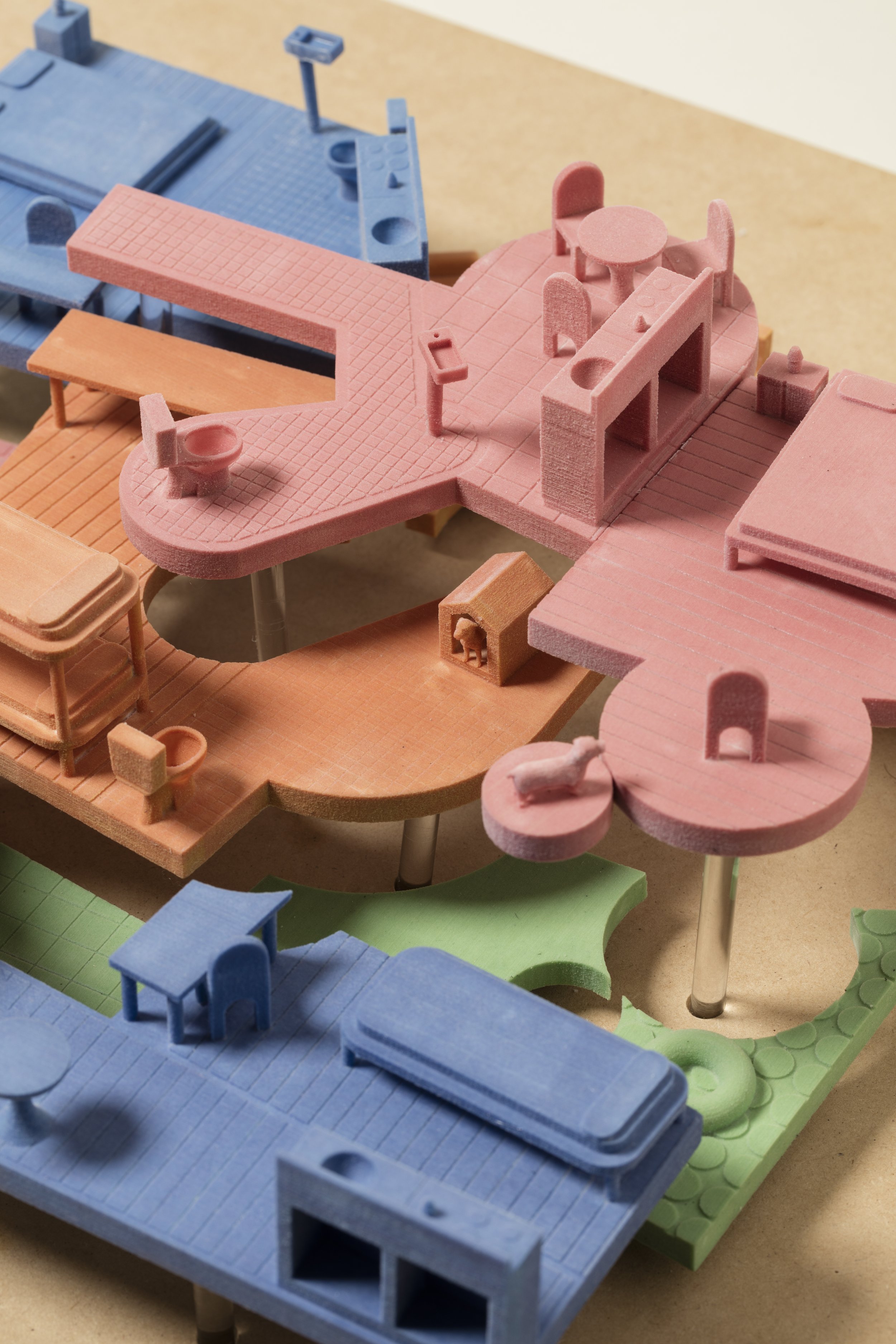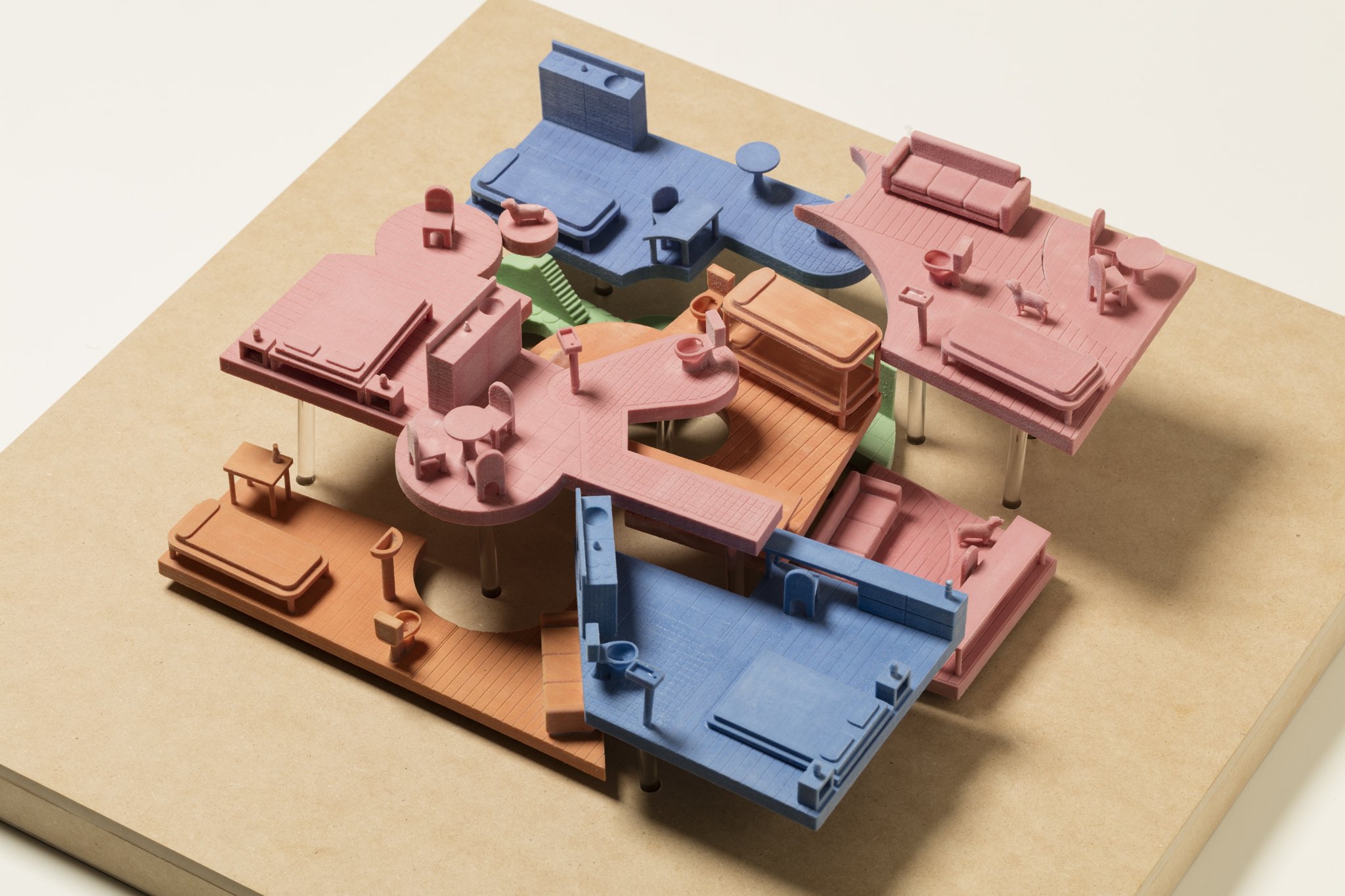
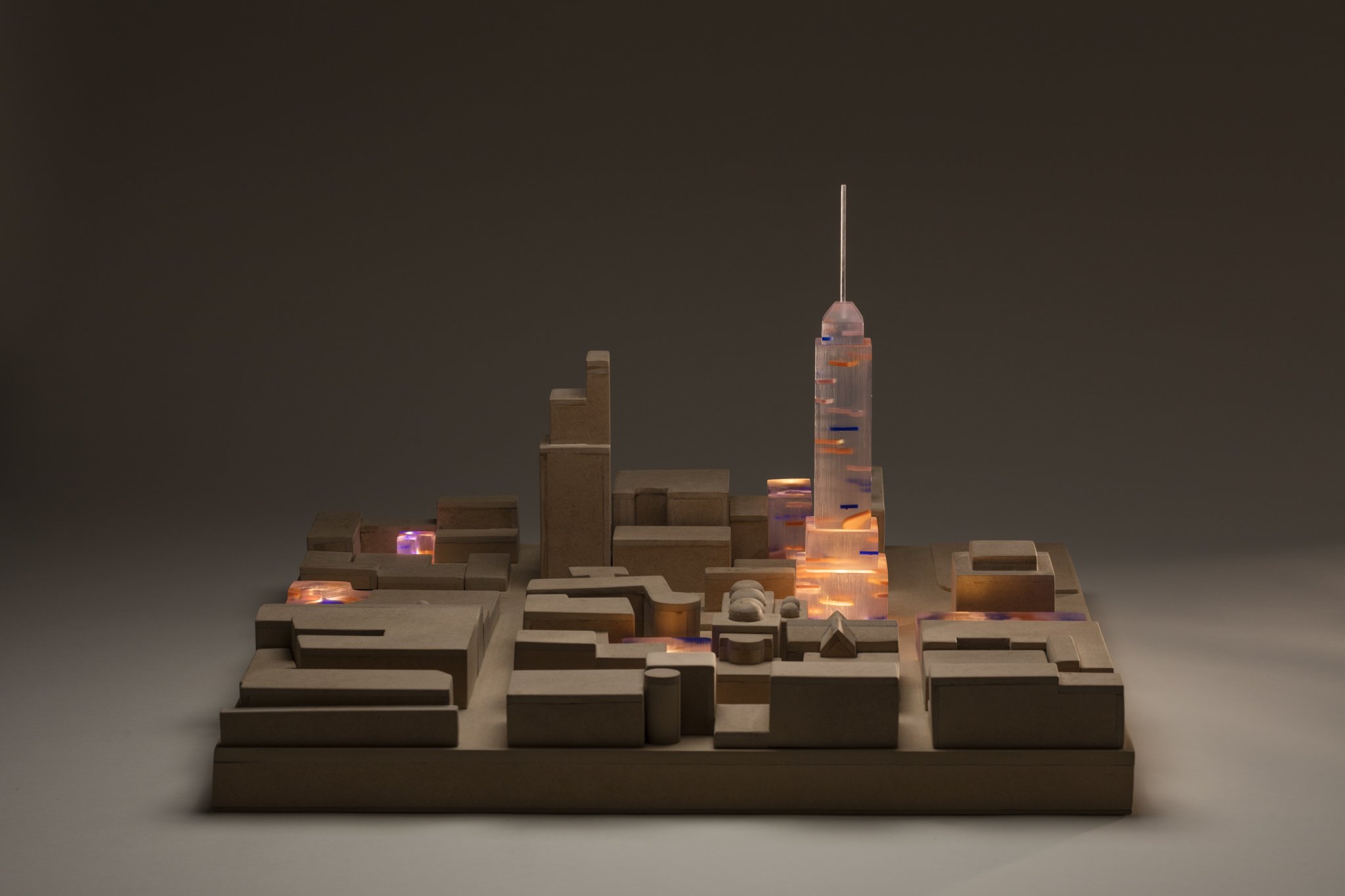
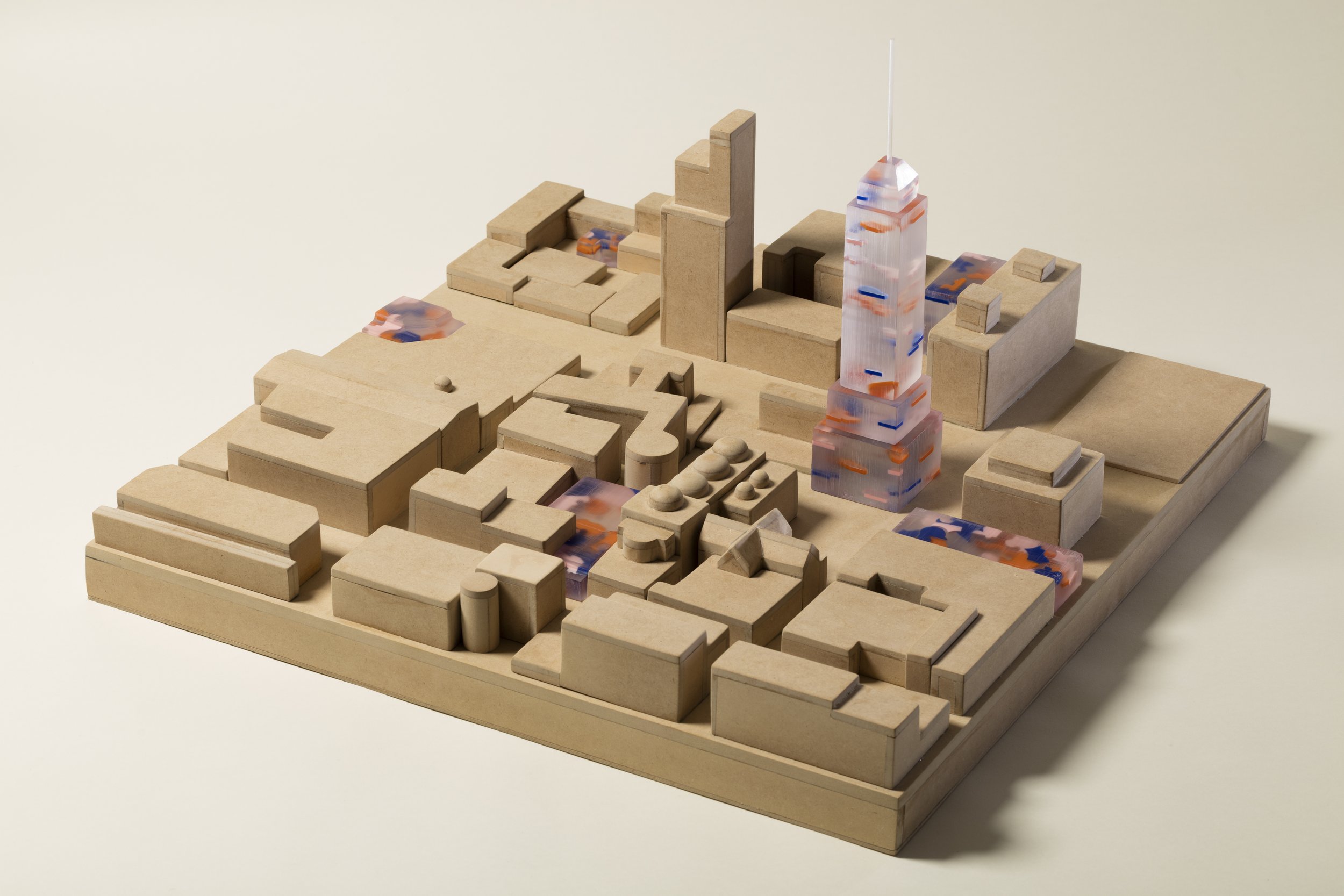
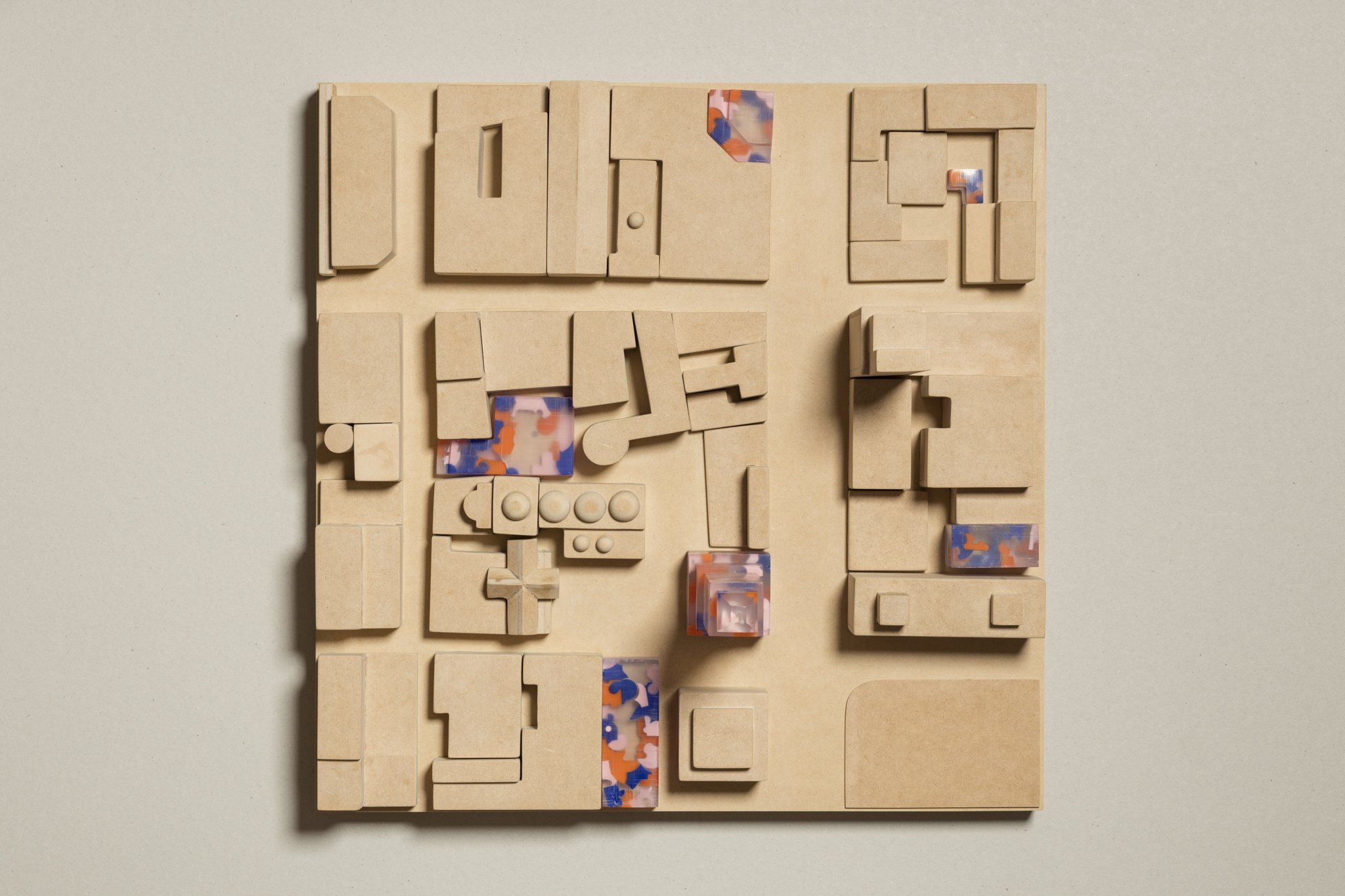
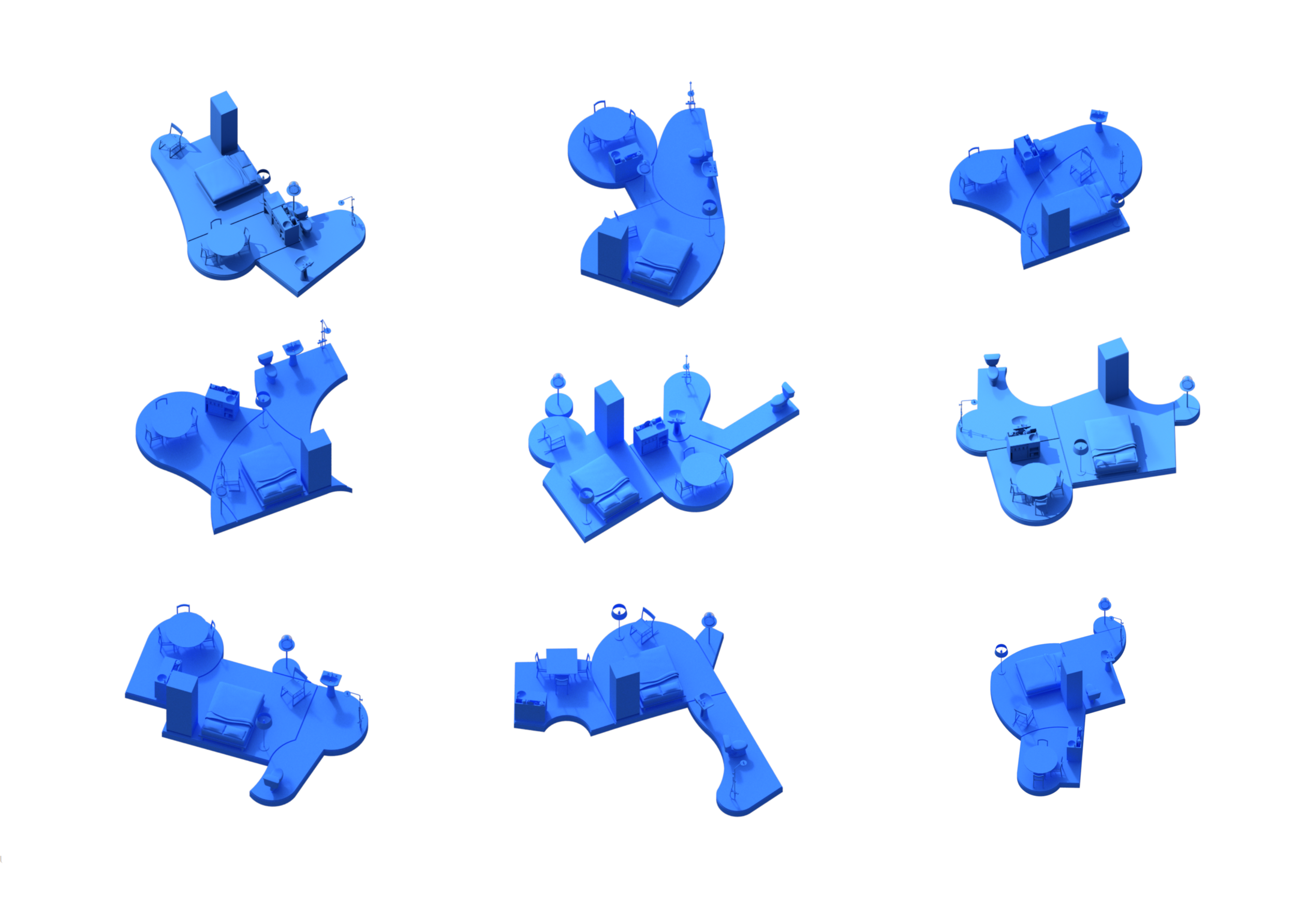
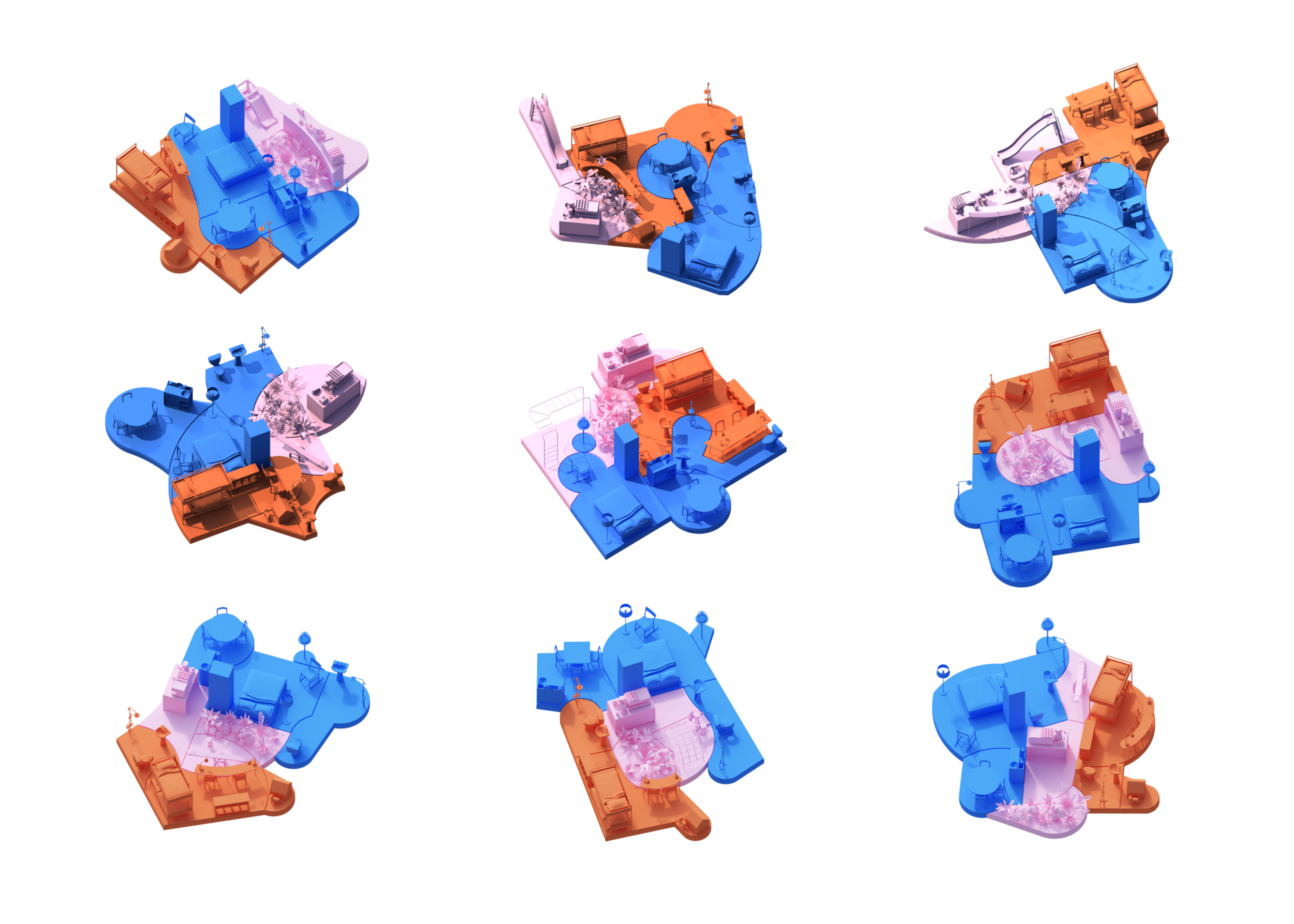
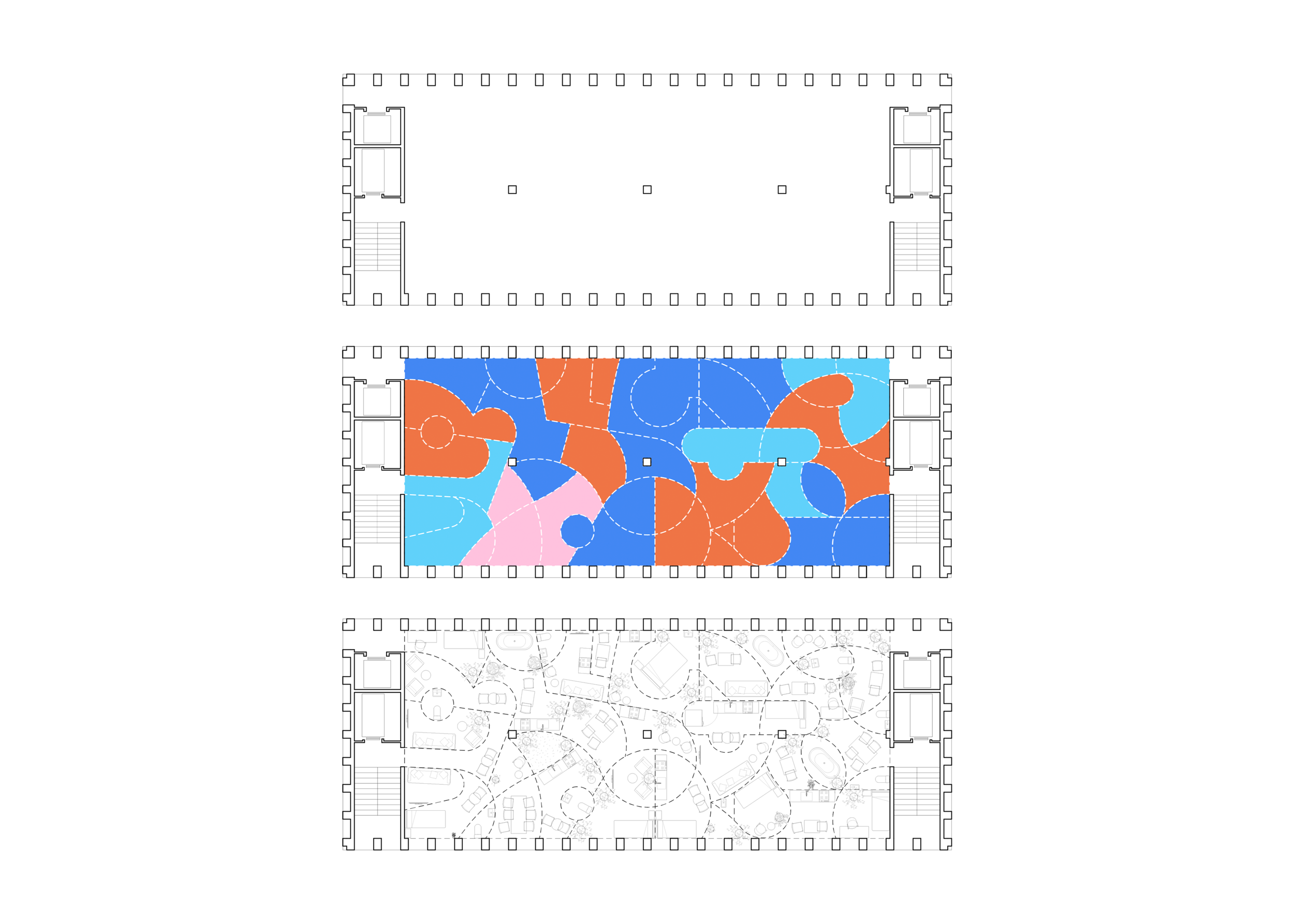
050 Hyper-personalization
A speculative model for hyper-personalized housing.
Location: Shanghai, China / Mexico City, Mexico
Program: Housing / Software
Floor Area: N/A
Partner in Charge: Edgar Rodriguez
Project Team: Alexis Ávila, José Juan Garay, Alejandro Márquez, Sofía Trueba, Diego Pulido, Andrés Suárez, José García, Lauren Félix.
Model Photography: Rodrigo Chapa / C129
Status: Concept / Competition
Year: 2018
-
Hyper-personalization is a conceptual urban redevelopment strategy first presented in Shanghai, China, in 2018.
As the popularization of artificial intelligence tools continues to grow and their integration into everyday life further develops, information and services more accurately adapt to our specific personal needs. Today, websites, feeds, advertisements, and content are personalized based on an individual’s interests, actions, and intent, providing everyone with a tailored user experience. Inspired by this contemporary cultural phenomenon, this project envisions an architectural application of these tools on a speculative proposal for alternative urban re-densification strategies and collective housing design through an AI-aided methodology.
At its core, this project aims to incorporate the cumulus of the preferences and programmatic requirements of the future inhabitants as a basis for design, using an automized digital platform that generates multiple iterations of the personalized spaces. The plan drawings illustrate the project taking on a typical floor of an ordinary office building: The hyper-personalized spatial units fill and reorganize the interior of the modernist generic free plan. Each AI-generated room responds and correlates formally to the adjacent spaces, fitting in perfectly like a programmatic jigsaw puzzle.
The project operates simultaneously on both urban and architectural scales. As an urbanization strategy, the project proposes reusing a city’s underused building stock through its temporary interior adaptation. At the scale of the unit, the project explores new forms and spatial arrangements for housing units. Bipartite bathrooms, semicircular dining rooms, and irregularly shaped terraces result from the negotiation of space between neighboring units. The project develops a unique formal lexicon based on the individual piece of furniture.
-
-
2018 - First Prize - NOVA Design Award
-
2018 - ArchDays - Utopía: De la ficción a lo factible, Mexico City, Mexico.
-

